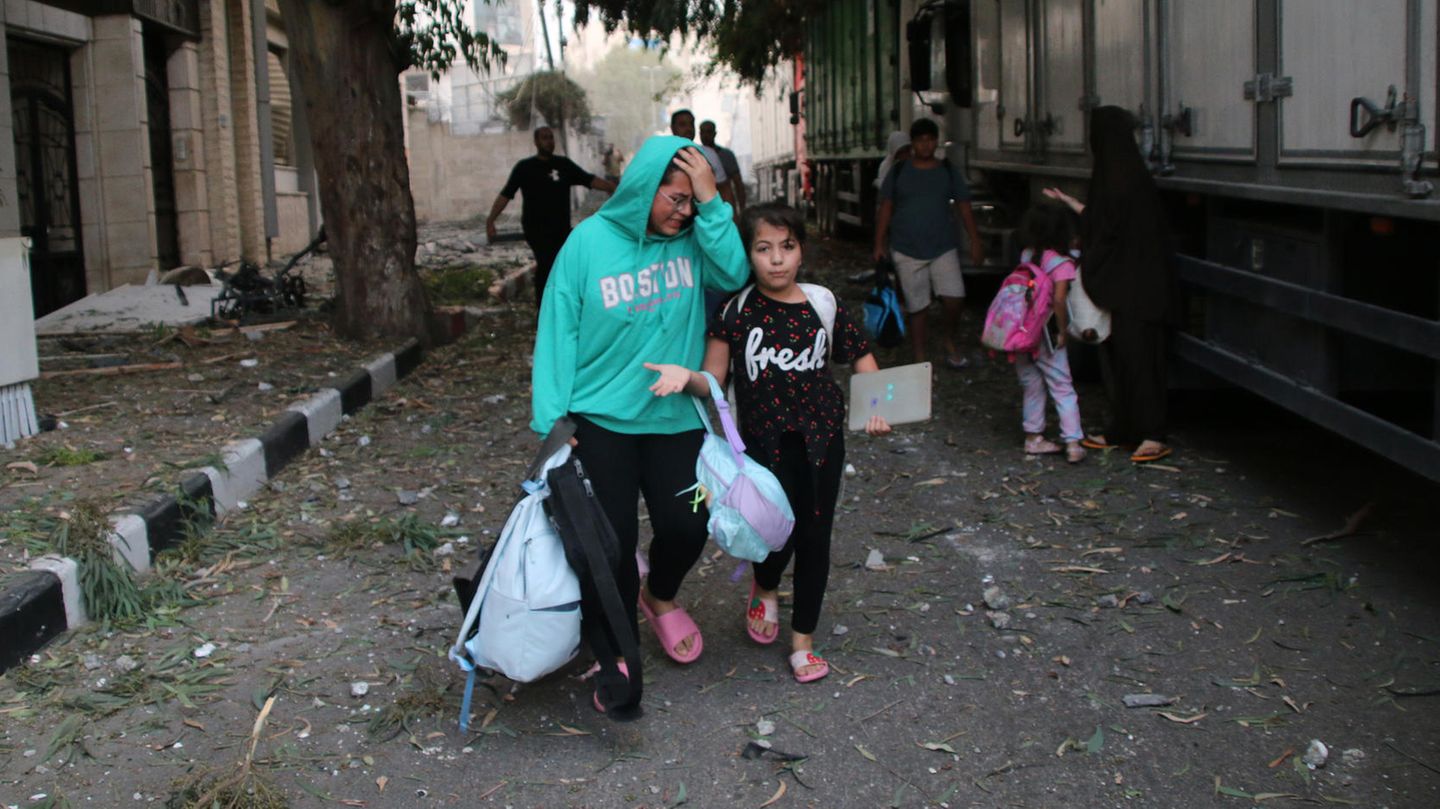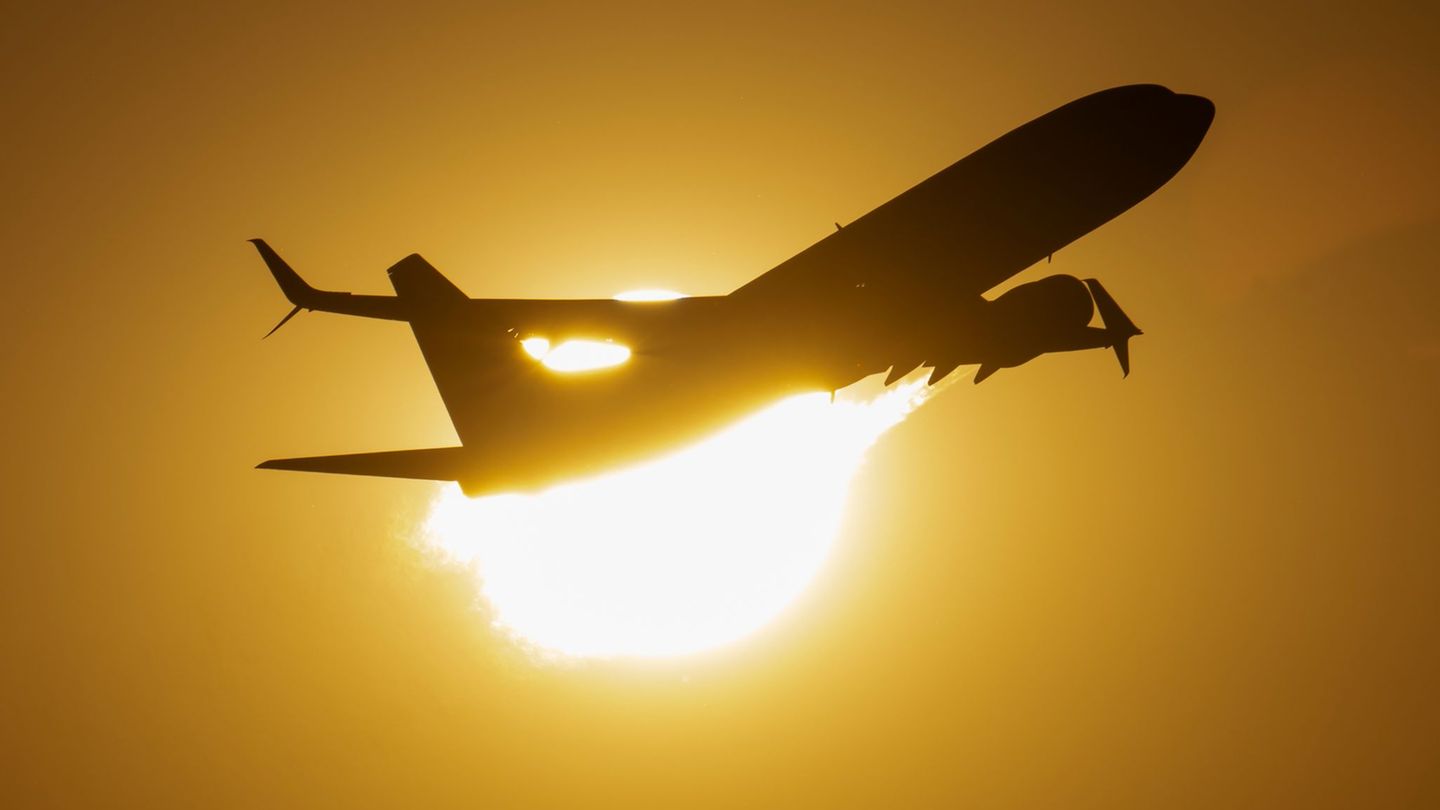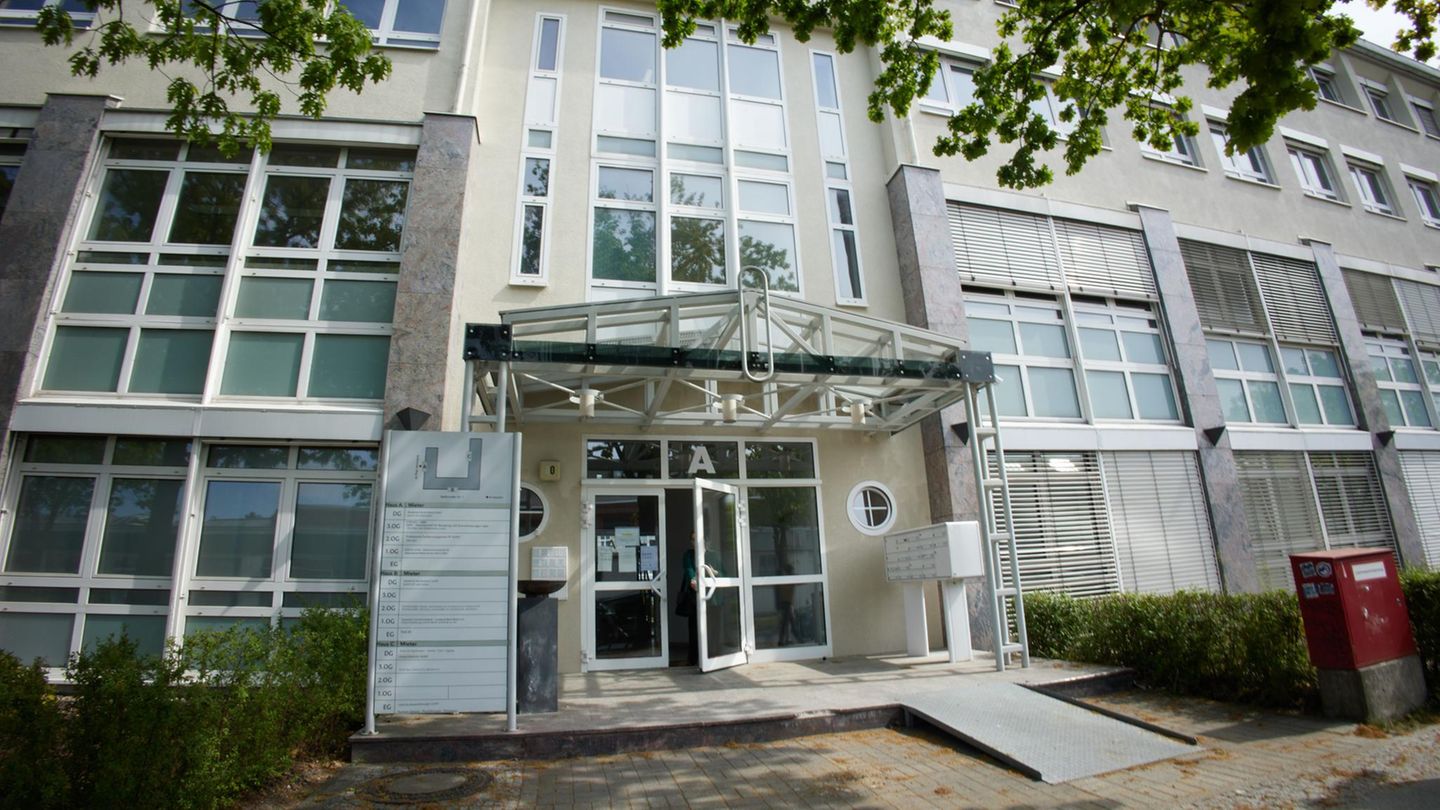Israel continues to bomb the Gaza Strip and the humanitarian situation is deteriorating dramatically. The spokeswoman for the UN refugee agency describes the catastrophic situation on site and talks about dwindling supplies and financial help from Germany.
She is a spokesperson for the United Nations Relief and Works Agency for Palestine Refugees in the Middle East (UNRWA) and has already been to Syria, Libya and Sudan for the UN – but when Juliette Touma speaks to Stern about the current situation in the Gaza Strip, her voice breaks multiple. She says: She has never seen a humanitarian catastrophe like this.
Ms. Touma, Israel has ordered an evacuation for the north of the Gaza Strip. Residents should leave their homes within 24 hours and seek safety further south. What does this mean for the humanitarian situation there?
It’s horrible. An exodus is taking place as we speak. People are fleeing in droves. There is only one main coastal road to the south. This evacuation order is impossible to enforce. The affected region is the heart of Gaza. A good million people live there. Our UN headquarters and most hospitals are located there. What will now become of the seriously wounded lying there?
UNRWA has 13,000 staff in Gaza. Eleven of them have already been killed by Israel’s bombings. How do you deal with that?
Unfortunately the number has increased. Thirteen of our employees have now been killed, including teachers, a doctor and an engineer. Men, women, their families. Our employees on site are scared to death. That’s what I hear – in the calls and voicemails I received from them just this morning. They didn’t know what the next minute would bring. Those who have children shared how helpless they feel. Because they cannot assure their children that everything will be okay. Children and civilians have nothing to do with politics! You have nothing to do with this conflict! They must not be killed! I have worked for the UN for 20 years. I’ve been to Syria, Yemen, Sudan, Iraq, Libya. I’ve never seen anything like it.
Can you currently provide any help?
Most of our on-site programs had to be stopped or adjusted. The schools in which we normally teach over 300,000 children have now been closed for a good week. Our food distribution to almost 1.2 million people has been reduced. We have had to close our 14 distribution centers because we can no longer get food to Gaza. Our supplies are quickly running out. The UNRWA staff left the headquarters in Gaza City and fled to our distribution center in Rafah, far south. Many of our facilities are now operating as shelters. Last night 270,000 people were accommodated there. These numbers have increased dramatically within the last few hours.
What about the water and electricity supply on site?
It’s tragic. Water and electricity are no longer available in most of the Gaza Strip. Before October 7, Gaza depended on water trucked in from Israel’s private sector. These deliveries are no longer available.
Although Germany wants to continue paying humanitarian money to Palestinian areas, it has stopped its development aid for the time being. Berlin is UNRWA’s second largest donor. What consequences does this have for you?
Without Germany we would never have been able to realize all of our work. We are in constant contact with German government representatives. But to be honest, we still don’t know whether this payment stop affects us or not. I can’t say anything about possible amounts yet.
In Germany there is always criticism of your organization. The Green Party politician Volker Beck recently told Stern that some UNRWA employees are loyal to Hamas. Is it really like that?
We have a robust control system in our HR department. Our future and current employees are checked. And we train them on neutrality and the values of the United Nations.
Another point of criticism: UNRWA schools use textbooks that, among other things, glorify the Palestinian Olympic bombers in Munich in 1972. These books are provided by the Palestinian Authority. But still can’t you do anything about it?
UNRWA does not have its own textbooks. We use the material from the state curriculum – be it in Lebanon, Jordan, Syria, the West Bank or Gaza. The simple reason for this is that UNRWA schools usually only go up to the ninth grade, after which the children switch to a public school, making the transition easier. UNRWA regularly reviews these textbooks to ensure that nothing controversial is taught in our schools. There is a separate committee for this. The opposite is the case: our schools are among the only ones in the region where children learn about human rights and tolerance.
What does it take for the people of Gaza at this moment?
There should be an unconditional, open humanitarian corridor for Gaza. So that people who want to can escape and we can bring our supplies in. Those are the top two priorities: protecting people and humanitarian access.
The Israeli army will soon enter the Gaza Strip with tanks, and the first raids are already underway. What are your fears about the next few days?
We fear the worst. It’s a tragedy. Before the eyes of the world, the people of Gaza are being pushed to the brink of the abyss. It has turned into a hellhole.
Source: Stern
I have been working in the news industry for over 6 years, first as a reporter and now as an editor. I have covered politics extensively, and my work has appeared in major newspapers and online news outlets around the world. In addition to my writing, I also contribute regularly to 24 Hours World.




